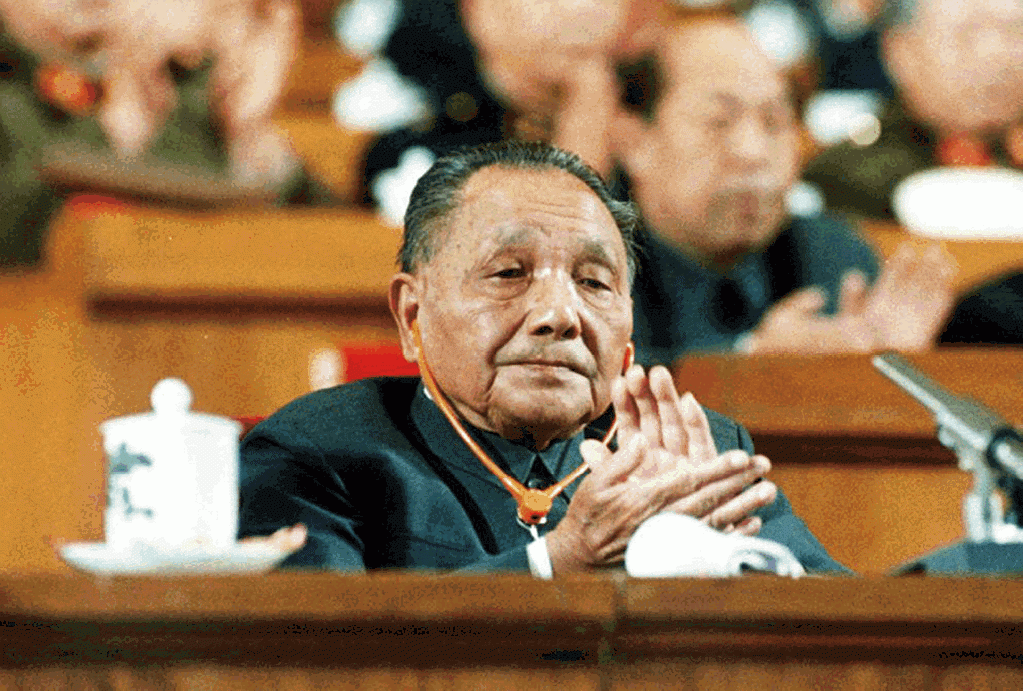Chief Executive Carrie Lam and her administration insist that Hong Kong has an “executive-led” system of government, with no formal separation of powers between the executive, the judiciary and the legislature. This seems directly to contradict statements by successive chief justices about guarantees of judicial independence under the doctrine of separate powers.
The issue at the crux of the debate is whether Hong Kong’s system is founded on a common law principle which provides safeguards against the abuse of power. Given the uncertainties surrounding the national security law, there are concerns that Lam’s administration is weakening the checks and balances that guarantee judicial independence and the rule of law.

To understand what’s at stake, HKFP contacted a range of legal scholars and analysed the government’s comments in the context of the Basic Law.
What is the separation of powers?
It is a common law principle which splits governance into three branches: the executive, the legislature and the judiciary. It prevents each branch from encroaching on the others’ constitutionally-mandated functions, setting up a system of “checks and balances” to guard against an abuse of power by any one branch. It is seen by legal scholars as a crucial foundation for the rule of law.
What does the law say about it?
Basic Law
The city’s mini-constitution was drafted to implement the promises set out in the Sino-British Joint Declaration of 1984, which laid out Beijing’s basic principles regarding the future Hong Kong Special Administrative Region.
Article 2 authorizes the HKSAR to “exercise a high degree of autonomy and enjoy executive, legislative and independent judicial power, including that of final adjudication”, giving effect to Clause 3(3) of the Joint Declaration.
To ensure the high level of autonomy, the three powers are granted separately as follows:
The Executive: the power to initiate and enforce the law was granted to Hong Kong’s government under Articles 16 and 59 of the Basic Law. Under Article 64, the government “must abide by the law and be accountable to the Legislative Council.“ The same wording is found in Section 1, Annex I of the Joint Declaration.

The Legislature: the power to make laws that govern Hong Kong was granted to the city’s Legislative Council under Articles 17 and 66. Its law-making powers are limited by Article 74, which requires the chief executive’s written consent before bills relating to government policies and public spending are introduced.
The Judiciary: the courts hold the power of final adjudication, or the power to interpret the laws. This is granted to the courts under two provisions — Article 19 and Article 80 — in the Basic Law. Likewise, Section 3, Annex 1 of the Joint Declaration provides that “the courts shall exercise judicial power independently and free from any interference.“
Together, the provisions set up a system of governance underpinned by checks and balances between three discrete branches of government, each with separate powers. It’s noteworthy that these powers have already been granted to the HKSAR under these articles.
Common Law
According to Hong Kong courts, the separation of powers is an integral part of the city’s system of governance both under the Basic Law and under the common law system bequeathed by British colonial governments.
Under Article 8 of the Basic Law, the common law applies to the HKSAR. This extends to common law principles, a key one of which is the separation of powers.

The principle was accepted by the Court of Final Appeal (CFA) in 2014 in the case of Leung Kwok Hung v. President of the Legislative Council & Another.
In paragraph 27 of its judgement, the CFA affirmed a constitutional separation of powers that applies to Hong Kong under common law and is bolstered by the Basic Law: “it is preferable now to regard the relationship between a legislature and the courts as an outcome of the application of the doctrine of the separation of powers. This doctrine is a common law doctrine which, in the case of Hong Kong, is reinforced by the constitutional separation of powers provided for by the Basic Law.“
Chief Justices, including the incumbent Justice Geoffrey Ma, have repeatedly asserted that the doctrine of the separation of powers underpins Hong Kong’s legal system. In 2014, during a speech at the ceremonial opening of the legal year, Ma said: “The Basic Law sets out clearly the principle of the separation of powers between the legislature, the executive and the judiciary, and in quite specific terms, the different roles of the three institutions.“
Ma’s predecessor Andrew Li said in 2001: “Judicial independence is the most basic feature in the common law system as implemented in Hong Kong, and lies at the heart of the separation of powers among the executive, the legislative and the judicial branches, providing checks and balances against one another. “
What does Beijing say?
Mainland legal scholars have long rejected the doctrine of the separation of powers and have consistently referred to Hong Kong’s system as executive-led.

However, during a speech on March 28, 1990, to the Basic Law Drafting Committee, its chairman Ji Pengfei addressed the relationship between the executive authorities and the legislature, saying there should be an element of mutual accountability between the two:
“The executive authorities and the legislature should regulate each other as well as coordinate their activities. To maintain Hong Kong’s stability and administrative efficiency, the chief executive must have real power which, at the same time, should be subject to some restrictions.”
Early this month the Hong Kong and Macau Affairs Office and the China Liaison Office issued two separate statements in support of Lam’s statements and refuting the existence of the separation of powers.
The HKMAO asserted that Hong Kong cannot be compared with sovereign states and, as a special administrative region, lacks the constitutional status to implement the separation of powers – a system which it said had never existed in Hong Kong. The suggestion here is that the separation of powers is an inappropriate description of Hong Kong’s system since all powers granted to it stem from the Chinese constitution.

The office cites Deng Xiaoping’s speech on April 16, 1987 to the Basic Law Drafting Committee in which he stated: “Hong Kong has not adopted the British or the American systems and made it past one-and-a-half centuries. It is inappropriate to fully adopt their systems at this moment.”
The same “executive-led” interpretation was affirmed by the Liaison Office, which described Hong Kong’s executive-led system as “the division of the three powers, executive-led, judicial independence, the executive reports to the central government on behalf of the HKSAR.“
Can there be a separation of powers in an executive-led system?
Yes, if the “executive-led” system is defined within the provisions of the Basic Law.
Article 43 states that the chief executive (CE) is the head of the HKSAR and represents the region. Article 74 requires the legislature to obtain the CE’s written consent before introducing bills relating to government policies and public spending.
However, under Article 64, the government, which includes the CE, is accountable to the legislature. Also, all executive actions may be challenged in court by Hong Kong citizens under Article 35, meaning the government is also subject to judicial review.
Where “executive-led” means that the government headed by the CE has the power to instigate and enforce laws, Hong Kong’s legal system is, in effect, led by the executive, but this does not override or replace the separation of powers.

Neither the Hong Kong or central governments have defined what they consider to be an executive-led system in relation to the Basic Law and the common law. Instead, Secretary for Justice Teresa Cheng has warned against getting mired in terminology. However, the statements by Lam’s administration and the two Beijing agencies suggest that their understanding of an “executive-led” system and the separation of powers are inherently incompatible.
What legal scholars say
Albert Chen, a professor of constitutional law, told HKFP that the debate was merely an issue of interpretation and description, deferring to the statements from Beijing as the appropriate description of the Hong Kong system.
“Hong Kong and Chinese government officials reject the [Chinese term for the separation of powers] mainly because it is considered to be inconsistent with the [Chinese term for an executive-led system], which they believe to be the accurate description of the nature of the HKSAR political system.”

However, he said there is no inconsistency between the separation of powers and an executive-led system, and he does not think the government’s comments “will change the way in which courts apply the doctrine of separation of powers in the future.“
Another constitutional law expert, Professor Johannes Chan, told HKFP it goes deeper than a matter of description:
“It is true that there is a different understanding between Hong Kong and the Mainland on separation of powers, but this is more than a matter of interpretation. The understanding will affect how one sees the development of the system.“

He also raised concerns that the government interprets “executive-led” to mean that it can override the courts. “It begs the question of what is executive-led… if it means that the executive prevails over the judiciary or that the Chief Executive is above the law, that is something to be worried [about].”
Chan also said that the separation of powers does not touch on the question of sovereignty. “No one says that [the separation of powers] would allow Hong Kong to usurp power that is beyond its autonomy. For powers that are within its autonomy, there is nothing wrong about separation of powers among the three branches, in that each has its own constitutional role and there are checks and balances.“
“This has nothing to do with the sovereign power. Nor is it inconsistent with the power coming from the sovereign. But if the objection is that the sovereign has power over the judiciary and the judiciary is expected to be a compliant judiciary, that is of course not our understanding and contrary to what the Basic Law has provided for.“
